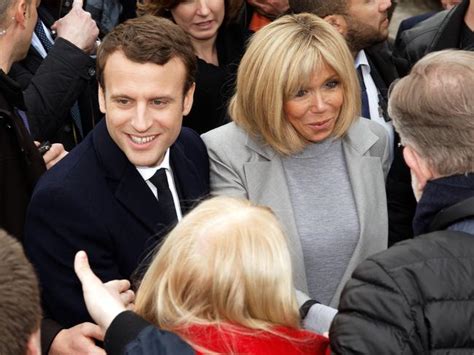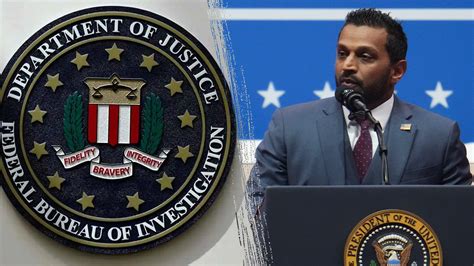
French President Emmanuel Macron has dismissed a viral video appearing to show him brushing off his wife Brigitte Macron during a ceremony, labeling the incident a “joke” and accusing detractors of propagating misinformation. The video, which circulated widely on social media, sparked debate and speculation about the couple’s relationship, prompting the president to address the issue directly.
Macron responded to the controversy by stating that the gesture was misinterpreted and taken out of context. According to Macron, the seemingly dismissive action was a lighthearted moment between him and his wife during a long and formal event. He further condemned the spread of the video with misleading commentary, suggesting it was part of a broader effort to create false narratives.
Macron Addresses Misinformation Surrounding Viral Video
President Emmanuel Macron has responded to a viral video that fueled speculation about his relationship with his wife, Brigitte Macron, dismissing it as a “joke” that was maliciously taken out of context. The incident, which occurred during a formal ceremony, showed Macron appearing to brush off Brigitte’s hand or arm, sparking a wave of social media commentary and allegations of marital discord.
“It was a moment of levity, a private joke blown out of proportion,” Macron stated in a brief address to reporters following the incident. “The attempt to portray it otherwise is simply misinformation, designed to create division and negativity.”
The video, initially shared on various social media platforms, quickly gained traction, accompanied by captions suggesting tension between the President and First Lady. Some commentators speculated about the nature of their relationship, while others accused Macron of disrespect. The controversy unfolded against a backdrop of heightened political scrutiny and a climate ripe for online misinformation campaigns.
Context of the Incident
The incident took place during a public ceremony, details of which have been reviewed to ascertain the actual setting and circumstances. According to official reports and eyewitness accounts, the event was a lengthy and formal gathering involving numerous dignitaries and public figures. The Macrons were observed interacting with attendees and participating in ceremonial proceedings for several hours prior to the moment captured in the contentious video.
A close aide to the President, speaking on condition of anonymity, corroborated Macron’s account. “The President and Madame Macron have a close and playful relationship,” the aide stated. “Anyone who has observed them together can attest to their affection and mutual respect. This particular moment was taken entirely out of context to create a false narrative.”
The Spread of Misinformation
The rapid dissemination of the video and the accompanying misinformation highlights the challenges posed by social media in the digital age. Experts warn that deliberately misleading content can spread rapidly, influencing public opinion and damaging reputations.
“Social media algorithms often prioritize engagement over accuracy, which can lead to the amplification of false or misleading information,” explains Dr. Emily Carter, a media studies professor. “In this case, a brief video clip was divorced from its original context and used to construct a narrative that served a specific agenda.”
The Macron administration has increasingly focused on combating online misinformation, particularly in the lead-up to major elections and during periods of political sensitivity. The government has introduced measures aimed at holding social media platforms accountable for the content shared on their networks and promoting media literacy among the public.
Brigitte Macron’s Perspective
While Brigitte Macron has not issued a direct statement regarding the incident, sources close to the First Lady indicate that she shares her husband’s view that the video was misinterpreted. “Madame Macron is aware of the speculation surrounding the video,” a source revealed. “She supports the President’s assessment that it was a harmless moment blown out of proportion.”
Brigitte Macron has generally maintained a private demeanor regarding her personal life, focusing instead on her public duties and charitable endeavors. She has been a vocal advocate for education reform and has worked to promote cultural initiatives and support vulnerable populations.
Reactions and Analysis
The incident has drawn mixed reactions from the public and political commentators. Some have expressed skepticism about Macron’s explanation, while others have defended his right to privacy. Political analysts suggest that the controversy is unlikely to have a lasting impact on Macron’s popularity or political standing.
“This is a minor incident that has been amplified by social media,” says political commentator Jean-Pierre Dubois. “While it may generate some short-term media attention, it is unlikely to resonate with the broader public in a significant way.”
The incident also underscores the intense scrutiny faced by public figures, whose actions are often subject to intense examination and interpretation.
Government Efforts to Combat Misinformation
The French government has implemented several initiatives to combat the spread of misinformation online. These measures include:
-
Legislation to Hold Social Media Platforms Accountable: Laws have been enacted to require social media companies to remove illegal content and take steps to prevent the spread of false information.
-
Media Literacy Programs: Educational programs have been launched to promote critical thinking skills and media literacy among the public, particularly young people.
-
Fact-Checking Initiatives: The government supports independent fact-checking organizations that work to verify information and debunk false claims.
These efforts are part of a broader strategy to safeguard democratic processes and protect citizens from the harmful effects of misinformation.
The Impact on Macron’s Image
Despite the controversy, analysts believe that the incident is unlikely to significantly tarnish Macron’s image. His supporters have largely dismissed the video as irrelevant, while his opponents may seize on it to reinforce existing criticisms.
“Macron has a strong base of support, and this incident is unlikely to shake their confidence in him,” argues political strategist Sophie Laurent. “However, it could provide ammunition for his critics, who may use it to portray him as aloof or out of touch.”
Broader Context of Macron’s Presidency
The controversy comes at a time when Macron is facing numerous challenges, including economic reforms, social unrest, and geopolitical tensions. His presidency has been marked by both successes and setbacks, and he remains a polarizing figure in French politics.
Macron’s supporters praise his vision for modernizing the French economy and strengthening the country’s role in the European Union. Critics, on the other hand, accuse him of being elitist and insensitive to the concerns of ordinary citizens.
The Role of Social Media in Shaping Public Opinion
The incident underscores the pervasive influence of social media in shaping public opinion and political discourse. Social media platforms have become powerful tools for disseminating information, both accurate and inaccurate, and for mobilizing public sentiment.
“Social media has transformed the way we consume news and engage with politics,” says media expert Dr. Carter. “It has also created new challenges for combating misinformation and protecting democratic processes.”
Conclusion
President Macron’s dismissal of the viral video as a “joke” highlights the ongoing tension between public scrutiny and the private lives of political leaders. While the incident has generated considerable media attention and social media chatter, its long-term impact on Macron’s political standing remains to be seen. The incident also serves as a reminder of the challenges posed by online misinformation and the need for greater media literacy and critical thinking skills. The incident also underscores the importance of context and verification in an age of rapid information dissemination. Without context, the video was perceived negatively but with context, the truth could be clearly seen and the truth is what Macron revealed.
Expanded Context and In-depth Analysis:
The furor surrounding the viral video showcasing a perceived interaction between President Macron and his wife Brigitte underscores a broader societal trend: the heightened surveillance and scrutiny of public figures in the digital age. This phenomenon, fueled by the proliferation of social media and the immediacy of online news cycles, presents unique challenges for political leaders navigating the complexities of maintaining a public image while preserving some semblance of privacy.
The Evolution of Presidential Image Management:
Historically, the management of a president’s image was largely controlled by traditional media outlets and carefully curated public relations campaigns. Access to the president was limited, and journalists typically adhered to established norms of professional conduct, respecting certain boundaries of privacy and decorum. However, the advent of social media has democratized the media landscape, allowing ordinary citizens to become active participants in the dissemination of information. This shift has eroded the traditional gatekeeping role of established media organizations and empowered individuals to capture and share unfiltered glimpses of the lives of public figures.
The Impact of Social Media on Political Discourse:
The rise of social media has also transformed the nature of political discourse. Online platforms have become breeding grounds for misinformation, conspiracy theories, and personal attacks. The anonymity afforded by the internet can embolden individuals to engage in behaviors they might otherwise avoid in face-to-face interactions. This toxic online environment can contribute to a climate of polarization and distrust, making it increasingly difficult for political leaders to communicate effectively with the public.
The Macron Administration’s Response to Online Misinformation:
The Macron administration has been particularly vigilant in its efforts to combat online misinformation. France has been a vocal advocate for greater regulation of social media platforms and has implemented measures to hold tech companies accountable for the content shared on their networks. The government has also invested in media literacy programs aimed at educating citizens about the dangers of fake news and promoting critical thinking skills. These efforts reflect a growing recognition of the potential for online misinformation to undermine democratic institutions and erode public trust.
The Role of Context in Interpreting Public Events:
The controversy surrounding the Macron video highlights the crucial importance of context in interpreting public events. A brief video clip, divorced from its original setting and circumstances, can easily be misinterpreted or manipulated to create a false narrative. In this case, the lack of context allowed for speculation and conjecture to fill the void, leading to widespread mischaracterization of the interaction between the President and First Lady. This underscores the need for individuals to exercise caution when consuming information online and to seek out multiple perspectives before forming an opinion.
The Implications for Political Leadership in the Digital Age:
The incident serves as a cautionary tale for political leaders navigating the complexities of the digital age. In an era of constant surveillance and instant communication, every public action is subject to intense scrutiny and potential misinterpretation. Leaders must be mindful of the potential for their words and deeds to be taken out of context and used against them. They must also be prepared to respond quickly and effectively to online misinformation campaigns. The ability to manage one’s public image and communicate effectively in the digital realm has become an essential skill for political leaders in the 21st century.
The Broader Societal Implications:
The controversy surrounding the Macron video also raises broader societal questions about privacy, accountability, and the role of social media in shaping public opinion. As technology continues to evolve and the boundaries between public and private life become increasingly blurred, it is imperative that we engage in a thoughtful and informed discussion about the implications for our democratic institutions and the future of our society.
Beyond the Immediate Controversy:
While the immediate focus has been on the video and Macron’s response, the incident offers a valuable opportunity to examine the underlying dynamics that shape our perceptions of political leaders and their relationships. By understanding the role of social media, the importance of context, and the challenges of managing a public image in the digital age, we can become more informed and discerning consumers of information.
Ethical Considerations for Journalists and Social Media Users:
The incident also highlights the ethical considerations for both journalists and social media users. Journalists have a responsibility to report accurately and fairly, providing context and avoiding sensationalism. Social media users have a responsibility to share information responsibly, verifying facts and avoiding the spread of misinformation. By adhering to ethical principles, we can help to create a more informed and trustworthy information environment.
The Enduring Importance of Personal Relationships in Public Life:
Finally, the controversy serves as a reminder of the enduring importance of personal relationships in public life. The bond between a president and first lady can have a profound impact on the president’s leadership and the overall tone of his administration. The public often looks to the first couple as a symbol of stability and unity. The Macrons, like all political couples, are subject to scrutiny, but their relationship is ultimately a private matter that should be respected.
By examining the incident from multiple perspectives, we can gain a deeper understanding of the complex dynamics at play and draw valuable lessons for navigating the challenges of the digital age. Frequently Asked Questions (FAQs):
- What exactly happened in the video involving President Macron and his wife Brigitte?
The video, which went viral on social media, showed a moment during a formal ceremony where President Macron appeared to brush off his wife, Brigitte. This action led to speculation and commentary about the state of their relationship, with some suggesting tension or disrespect. The exact gesture is subject to interpretation, with some arguing it was a brief, almost unintentional movement, while others viewed it as a deliberate snub.
- How did President Macron respond to the video and the ensuing controversy?
President Macron dismissed the video as a “joke” that was taken out of context. He accused detractors of propagating misinformation and attempting to create a false narrative about his relationship with his wife. He implied that the moment was a lighthearted, private interaction that was misinterpreted due to the lack of context.
- What context did President Macron provide to explain the incident?
President Macron and his aides emphasized that the incident occurred during a long and formal ceremony involving numerous dignitaries. They suggested that the moment captured in the video was a brief, almost insignificant interaction within the larger context of the event. They maintained that the Macrons have a close and affectionate relationship and that the video was selectively edited and shared to create a false impression.
- What efforts has the French government undertaken to combat misinformation, and how does this incident relate to those efforts?
The French government has implemented several initiatives to combat online misinformation, including legislation to hold social media platforms accountable, media literacy programs for the public, and support for independent fact-checking organizations. This incident is relevant to those efforts because it highlights the rapid spread of misinformation on social media and the potential for even minor events to be distorted and used to create false narratives. The government views this as another example of the challenges they face in safeguarding democratic processes and protecting citizens from harmful disinformation.
- How have political analysts and commentators reacted to the controversy?
Reactions have been mixed. Some expressed skepticism about Macron’s explanation and saw the video as evidence of underlying tensions. Others defended Macron, arguing that the incident was minor and should not be blown out of proportion. Many analysts believe that the controversy is unlikely to have a lasting impact on Macron’s popularity or political standing, viewing it as a short-term media event amplified by social media.









